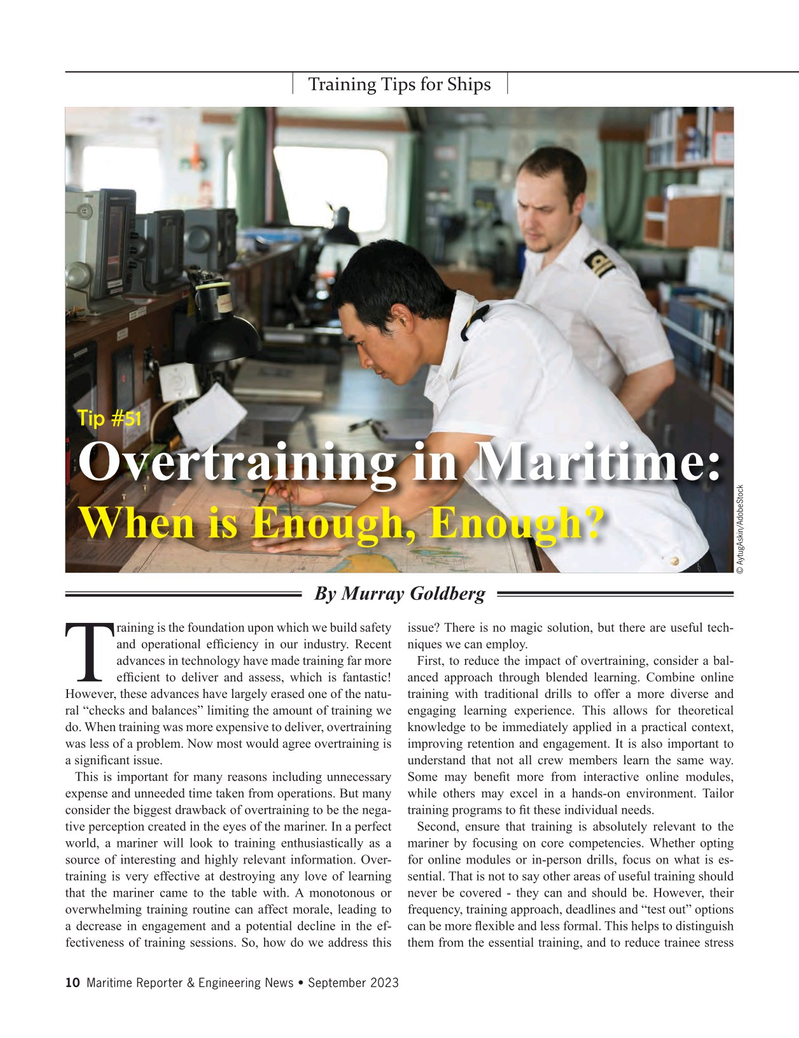
Page 10: of Maritime Reporter Magazine (September 2023)
Marine Design Edition
Read this page in Pdf, Flash or Html5 edition of September 2023 Maritime Reporter Magazine
Training Tips for Ships
Tip #51
Overtraining in Maritime:
When is Enough, Enough?
© AytugAskin/AdobeStock
By Murray Goldberg raining is the foundation upon which we build safety issue? There is no magic solution, but there are useful tech- and operational ef? ciency in our industry. Recent niques we can employ.
advances in technology have made training far more First, to reduce the impact of overtraining, consider a bal-
Tef? cient to deliver and assess, which is fantastic! anced approach through blended learning. Combine online
However, these advances have largely erased one of the natu- training with traditional drills to offer a more diverse and ral “checks and balances” limiting the amount of training we engaging learning experience. This allows for theoretical do. When training was more expensive to deliver, overtraining knowledge to be immediately applied in a practical context, was less of a problem. Now most would agree overtraining is improving retention and engagement. It is also important to a signi? cant issue. understand that not all crew members learn the same way.
This is important for many reasons including unnecessary Some may bene? t more from interactive online modules, expense and unneeded time taken from operations. But many while others may excel in a hands-on environment. Tailor consider the biggest drawback of overtraining to be the nega- training programs to ? t these individual needs.
tive perception created in the eyes of the mariner. In a perfect Second, ensure that training is absolutely relevant to the world, a mariner will look to training enthusiastically as a mariner by focusing on core competencies. Whether opting source of interesting and highly relevant information. Over- for online modules or in-person drills, focus on what is es- training is very effective at destroying any love of learning sential. That is not to say other areas of useful training should that the mariner came to the table with. A monotonous or never be covered - they can and should be. However, their overwhelming training routine can affect morale, leading to frequency, training approach, deadlines and “test out” options a decrease in engagement and a potential decline in the ef- can be more ? exible and less formal. This helps to distinguish fectiveness of training sessions. So, how do we address this them from the essential training, and to reduce trainee stress 10 Maritime Reporter & Engineering News • September 2023
MR #9 (1-17).indd 10 9/6/2023 4:34:07 PM

 9
9

 11
11
